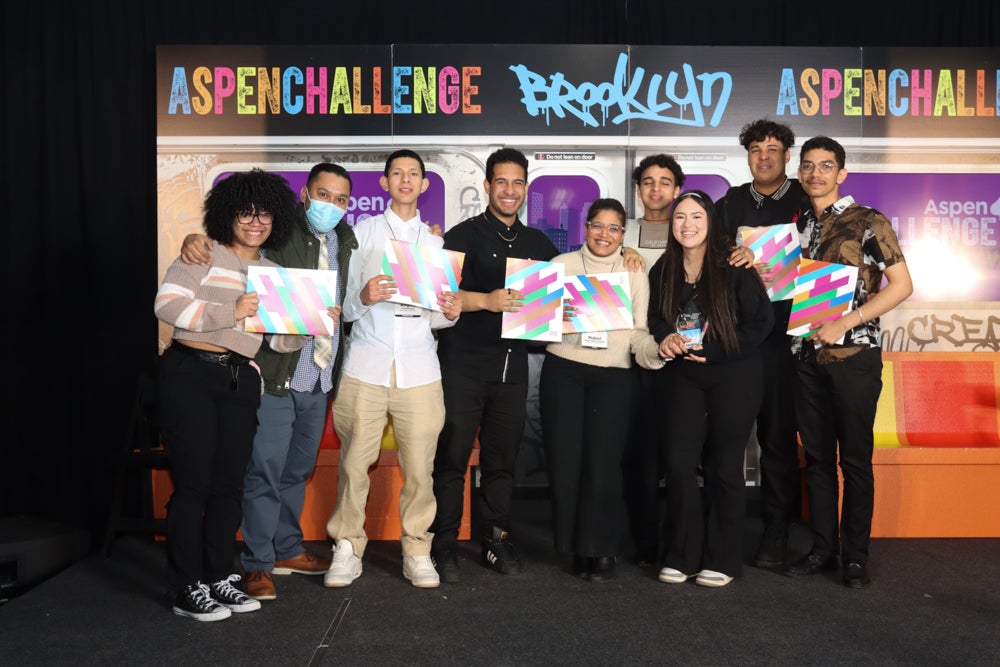Why, in an age when you can hear almost any famous speaker on YouTube or via a TED Talk, do people still go out of their way or even pay serious dollars to hear the big name speak in person? Certainly, some of the attraction is that one can later say that they have heard some famous speaker in person. Another attraction is, undoubtedly, the networking that goes on alongside the speech. Yet, I think that there is something more at work. We go to a “live event,” as we have learned to call it, because we want to be part of a gathering. We thrive on being grouped, even for an hour, around a theme, a purpose, a shared experience. The spoken word is a uniquely powerful bonding agent.
Like millions of people around the world over the last few weeks, I have been largely confined to home, in my case, an apartment in Washington, DC. I’ve made only a few forays out to get groceries or ride bikes with my 71-year-old brother who has a disconcerting habit of easily outpacing me. Among the many lapsed activities, worshiping with others has been another missed activity. I may miss this the most. Why, when we can and do listen to excellent sermons online, does missing worship leave a vacuum in my week that is difficult to fill?
I have learned a great deal about the unique power of gathering over the last nine months since moving to DC and searching for a faith community. Washington has a number of dynamic congregations across multiple denominations and faith traditions. One surprise to me has been the number of young people with whom I shared the pews. Some were local college students, but many others were working millennials. Why did they come? What, in a city that appears to be fiercely secular and even more fiercely preoccupied with politics, motivates them?
Those young people come because the spoken word in a group gathered together for a purpose can have a unique power. The spoken word in a gathering with purpose is all the more powerful now that we’re surrounded by words and images on the web and social media, all of which we can watch in anonymous silence. Networking may attract us, but an intentional gathering with spoken words at its center can unite us. It’s the shared experience of hearing the words in community that makes these events so special, especially when in worship. There is something unique to gather without it being economic, social, or political in nature. I’m also reminded, that in fact, being more than economic, social, or political grounds us as spiritual beings. Words in worship are not informational, but communicative, not simply to our heads, but our hearts. We can be deepened, centered, changed and made whole by words.
More than ever, we realize now how precious the bonds of community truly are. Judging from the comments crossing my monitor’s screen, many of the young people here in DC now miss worship as much as I do. Nurturing these bonds virtually as best we can in the absence of face-to-face, person-to-person gatherings is vital. Just as vital is committing ourselves to restoring them in the future once the current crisis passes, as we pray it does.
How can we do that? We must stay connected. Emails, phone calls, Skype, Zoom, chats, even amazingly, the encouraging card sent by snail mail, can be powerful supports for gathering at any time. Whatever the crisis, we need to keep in touch with each other as deeply and frequently as we can. These connections will be the anchors that draw us back together.
One deeper lesson that we can draw from this shutdown is a better understanding of how powerful faith communities can be in young people’s lives. The vibrant congregations in DC draw young people because they recognize the pluralism and secularism in which these young people live and work every day. They embrace diversity. All of the congregations that I visited drew in young and old, crossed racial boundaries, welcomed people of all sexual identities, and protected the immigrant. Denominational loyalties mean little. All of the young people with whom I worshiped work or study alongside people of a wide range of faiths or no faith at all. Instead of crossing on the other side of the road, their congregations confront the injustices in the city and challenge everyone in worship to do the same. One powerful message comes out loud and clear: the need to put faith into action. The seriousness of these churches in trying to feed, clothe, shelter and support those in need is inspiring to see. These reasons, too, are deep reminders of why we gather together.
Face-to-face, person-to-person, either one-on-one or for now in virtual small groups. Hopefully soon, when we can finally be in community again, we can join in celebration. We learn much from each other. Our gathering matters.
Carl J. Strikwerda is a professor of history emeritus and former president of Elizabethtown College and a Senior Fellow for Religious Pluralism at the Inclusive America Project and IFYC.
The Inclusive America Project is committed to advancing a thriving U.S. Religious Pluralism and believes an important step to achieving this goal is sharing diverse voices and ideas across our platforms. In this spirit, we are pleased to publish blogs written by external authors working in and around the space.
The views and opinions expressed in this blog do not necessarily reflect those of the Aspen Institute.


